Winter is a time often filled with surprises and wonderful gifts. I am pleased to report that I’ve received a fantastic surprise of my own. Thea: The Awakening, from developer MuHa Games, is my biggest surprise in strategy gaming this year. Often, I find out about games years before their release, but this one flew below my radar for a long time. It is perhaps not only my discovery of the game that is a surprise, but also the fact that the game released at all. It survived not one, but two failed Kickstarter campaigns. If there’s one thing this game’s story teaches though, it’s that it is never too late to turn things around. This is true not just in the game itself, but in indie development as well.
Shortly before release, I provided my first impressions of the game. Not that much has changed since that time, but I’ll be providing more in-depth coverage and analysis here based on my additional time with the final release.
A word of caution
Thea is a turn-based strategy game, but it differentiates itself from its strategy brethren in some very significant ways. It focus on a single village and its inhabitants, each with their own name and set of attributes, which creates a rather intimate experience. Since there are no rival empires or easily recognizable antagonists to deal with, the game relies heavily on its storytelling and event system to create a narrative that keeps you engaged. If you aren’t a fan of RPGs, choose your own adventure books, or reading a lot of text, I’d caution you to carefully consider if this is the right game for you.
Despite its emphasis on RPG elements, there are many aspects that keep at least one of the game’s feet planted in strategy soil. There is a research system that unlocks new buildings, crafting recipes, and resource options. There are villagers to manage and maintain as they perform tasks for you at home and all across the map. There is an underlying economic engine that relies on gathering resources from far and wide. There is even a need to keep a small army, or perhaps several armies, on hand to visit goodie huts and clear out rampaging monsters.
There are roguelike elements, so those who despise randomness and limited save options also need to be wary. The game strongly encourages you to push forward even when things take a turn for the worse. This is reinforced by a forgiving progression system that rewards you for what you accomplished in the game rather than what you failed to. Even if your village collapses, you’ll still receive experience that improves your chances in future games. One downside to this system is that you can really only have one active game at a time. If you plan to have multiple people playing on the same system, or just wanted to have multiple games going at once, the game doesn’t really accommodate this. There is also no multiplayer mode of any kind.
A World Fit for a Slavic Deity
It’s absolutely refreshing to see a new setting for a strategy game that is rich with real world lore. The world of Thea is based on the relatively unknown tales of Slavic myth and folklore. While some fantasy and mythological tropes do exist here, such as goblins, orcs, and elves, there are also witches who eat small children known as Baba Yaga, and seductresses known as Rusalka who try to tempt and confound your men.
If you’re like me, you don’t know much about the mythological gods of ancient Russia and Eastern Europe. These gods include the likes of Perun, the high god of thunder and lightning, Morena, the goddess of death and rebirth, and Lada, the goddess of hope. The game includes 8 of these gods, but 6 of them are locked at the start of the game. What is unique here is each player randomly gets 2 of the 7 lesser gods to choose from at the start of the game. To choose the others, you will have to level up your chosen god by progressing and finishing games. Win or lose, you’ll level the gods up and unlock additional powers as well as additional god choices for you to use in subsequent games.
If you’re concerned you won’t get the god you want right away due to the randomized element, it’s important to note that choosing a god is more like choosing a set of racial bonuses than choosing an entire race or faction in other strategy games. In fact, you don’t even really control or play as the chosen god, but rather your god provides you with some initial benefits and is the chosen deity of your people. What is a nice touch is that every god comes with their own unique divinity quest. These quests, their desires, and the rewards vary enough that I could see completing each god’s quest at least once to uncover their story being worthwhile.
A Better Tomorrow
Technology makes life better. Whether this is true or not in real life is sometimes debatable, but in strategy games researching and developing new things is certainly beneficial. Without technological advancements your village won’t know how to gather better materials or construct more than the most rudimentary objects. You receive progress towards advancement through tasks such as completing quests and defeating challenges rather than through the use of science buildings or researchers.
Research is used to unlock advancements in gathering, crafting, and construction. Gathering enhancements make the unlocked resource appear on the map as a new resource node and provide a one time bonus. Crafting enhancements unlock new weapons, armor, food options, and accessories. Construction enhancements unlock new buildings that offer a variety of benefits to the village itself.
There’s another way to advance that goes hand in hand with technology, and that’s through experience. Experience in Thea is unique in that all of your villagers level up simultaneously based on a shared experience system. Whenever your village as a whole has enough experience, you’ll receive a notification regarding the benefits everyone has received. These benefits are randomized and consist of an increase to a single attribute. Watching your villagers improve or even develop new skills is a key part of the experience.
Nobody is just a farmer
In most strategy games, the production of goods your empire needs to fuel its economic engine is performed by the nameless masses referred to as your population. While these citizens are absolutely essential to your success, they are also so numerous and abstract that you don’t spare more than a moment’s thought about them. In this game the scale is reduced dramatically and decreases your population from thousands to less than a dozen at the start of a typical game. This change in scale makes your citizens more than just production symbols to be shifted around on some abstract production screen. Every one of your citizens is vital and has a critical role to play, and when one of them dies, the loss can be quite substantial.
Your starting populace will consist of named individuals with varying attributes. There are so many attributes in fact that figuring out the importance of each of them can be quite daunting for new players. When you first start out, you won’t know how attributes like Stealth, Sturdiness, Folklore, or Feint are of any use to you. Thankfully, the game includes tooltips that will help clue you in, and also has a set of filters that show you what types of challenges each attribute is useful for. There is certainly a learning curve here, but understanding a few basic concepts helps shine a light on them as a whole.
There are a variety of different specialties or character classes that help define a person’s role. Basic classes include gatherer, crafter, and warrior, but there are others like sage and medic that also have their use. Not every class needs to be human either. You can recruit help from many different walks of life such as dwarves, elves, demons, beasts, and so on. These races are often superior to humans and bring their own interesting and often rare attributes. Most elves for instance have mastered the universally useful attribute of magic, while Dwarves are often excellent fighters with higher than average health and excellent crafting skills. Finding ways to attract or recruit these individuals into your village is satisfying and rewarding as they almost always have better attributes than a standard human.
It is important to keep in mind that it is attributes that really define someone’s usefulness. If you have a warrior with a low health pool, they may be a worse option for your scouting party than a crafter who has a high health and enough strength to use some decent equipment. In the same vein, a warrior can also be a great gatherer who can mine far off minerals while your war expedition rests and recuperates. Since attributes increase randomly with level-ups, and additional attributes can be gained randomly via events and challenges, it is important to examine your village populace from time to time to make sure you are using all their talents appropriately.
Gathering and crafting
The key attributes for any new village’s success are gathering and crafting. Your gatherers can either work in the village itself, collecting food and wood from the nearby sources, or you can send them out as an expedition of their own to gather from resources out in the wilds. Your crafters meanwhile will put these resources to good use by constructing buildings, baking meals, forging arms and armor, and even basic tools. The higher these attributes are on a given individual, the more useful and productive they will be. It therefore makes a lot of sense to send your best gatherers out to collect the rarest of resources as quick as possible while your best crafters tinker away at some awesome arms and armor. Ahh, if only the world was a safer place.
The crafting system in Thea is built around the use of raw materials collected from gathering or as spoils from combat. While it is possible to find a great weapon or piece of armor out in the wild, it is much more reliable to simply build it yourself. To build things, you must first have unlocked the recipes using the research system. Once unlocked, every recipe requires 3 ingredients, although only the primary and secondary impact the quality and capabilities of the item. The weapon’s name, look, and primary stats are determined by the material placed in the topmost slot. The secondary slot further enhances the items capabilities. The third slot simply needs to be filled, typically with a basic good, to allow the item to be created. Where you place each ingredient is crucial, and deciding when and how to use your most valuable resources makes for some interesting decisions.
Buildings also use crafters and the same core recipe system. You are limited to 10 buildings, so unlike most strategy games building construction plays a small role here. While at first glance it is easy to think that using the cheapest ingredients possible to get the building is the best way to go, there are some subtleties to the system that make this assumption incorrect. Using better ingredients improves the effectiveness of the building once constructed, and in the case of some, can even change how they act. For instance, with the right approach, it is even possible to attract unique races and creatures to your village, presumably because the site of your unique structures makes you more appealing to them.
A sense of adventure
While it would be a wonderful place to live if one could gather and tinker without a care in the world, there are unfortunately vile threats everywhere looking to bring an untimely demise to your villagers. This is why you also have warriors, men and women ready to not only explore but also guard and defend. You’ll want them to be out exploring the world, investigating lost ruins, clearing monster lairs, and solving problems for those they come across along the way. Unfortunately, if you send them all out to do that, you may leave your village or your gatherers who are off on their own highly vulnerable. The game includes a lot of risk vs. reward. You will struggle to figure out just how thin can you spread yourself, how soon and how far you should expand, and whether or not you’re up to the task of taking on a difficult challenge.
This brings me to what is likely the game’s defining feature, which is its event system and the sense of adventure it brings. New adventures can literally pop up at any time by way of the random event system. Often times an event will appear that offers you new opportunities at a remote location should you choose to pursue them. On the way to these, you may discover even more. Figuring out how to handle these isn’t always cut and dry either. Is the demon that just entered your village a blessing or a curse? How should you celebrate the Kupala Night, perhaps by running through flames? Also, there isn’t time to do both, so whom should you save from the wolves, the apparently magical cat or the child protected by some type of mysterious barrier?
Each event offers a unique set of challenges and decisions to be made. Many times you won’t even be able to select from all of the choices presented, and the game lets you know this by telling you up front how many choices there could potentially be. Whether or not these choices appear can depend on many things, such as who you have in your party, what attributes they’ve brought to the table, and what decisions you’ve made in the past. One of the memorable moments I’ve had so far has had to do with a decision I made in the past coming back at me in the future. I won’t spoil the surprise, but I did feel my decision had been impactful, for better or worse.
Challenges and cards
An adventuring party full of only warriors may sound like a great idea, but not every challenge can or needs to be solved using pure muscle. Aside from the event system, the other key feature of the game is the challenge system. I mentioned that you’ll often be presented multiple choices as you go on your adventures, and there are often multiple ways to solve problems. These can vary in difficulty, so for example taking an enemy on in a pure fight may be an option, but socializing with them or sneaking around them may be the easier and wiser course of action.
What this means is that there is almost always a use case to be made for diversity in your groups, and this becomes one of the key aspects you’ll need to manage throughout the entire game. Without a medic, your injured people are at far greater risk of death. Without a sage or those versed in lore, you may be unable to deal with hex and social challenges. Without a hunter, you may be missing out an opportunity to avoid wounds by hunting monsters rather than fighting them.
I mentioned in my first impressions that the challenge system is also a likely sore spot for many. Challenges use a card-based system. Every card in a challenge represents one of your villagers involved in it. Depending on the type of challenge, your villagers will have different attack, defense, and bonus actions available to them. Whether or not they have these options at all and how effective they are depends on their attributes and equipment. In a social challenge, you may find your warriors have zero attack and are largely ineffective if you haven’t increased their non-physical attributes in some way. There is certainly some strategy involved in how you choose to build and equip your parties.
Once they begin, challenges are primarily tactical, but also somewhat luck-based. Essentially, whenever you enter a challenge your party is split into two groups, a fighting group and a tactical group. Note that fighting doesn’t necessarily mean the challenge is a physical one. The fighting group will be your primary “damage” dealers and takers in the combat while the tactical group support, buff, or debuff the fighters. You get one chance to re-roll this (at easier difficulties) before combat begins, but after that you have to make do with what you have.
Throughout the challenge, the player and the opponent will take turns setting up. You may play a card, then the opponent may play 2, then you may play 2, and so on until all cards have been played. Only then will any combat actually take place. The cards file in and activate left to right, so there is a definite advantage to having your cards furthest to the left so they can defeat opponents before they even have time to attack. There is no initiative value to increase your odds of getting cards in first, but one of the abilities your tactical cards can use allows them to move one of your units all the way to the left. Your tactical cards can also sometimes use an ability called get closer that allows them to enter the fight as if they were a fighting card, but they start confused in the first round. After every two rounds of fighting, if cards remain on both sides, you and your opponent reshuffle and split your cards again and begin placement again.
Combat is deterministic in that you simply take the attack value and apply it against the opponent’s shield + armor/health. There are no random die rolls to worry about. This doesn’t mean that combat lacks further randomness. The thing is each card will randomly attack left or right when its turn comes up. This can add a dramatic element of luck to the game that may not sit well with some. If you tactically place your heavy hitting warrior left of a heavy hitting enemy, you’ve set yourself up to kill it before it can react. If that enemy gets buffed by a tactics card to move further to the left, your plan may be in vain. That isn’t so bad, but what can also happen is a weak 3 hp enemy can also be pushed to the front of the line before your warrior. If your warrior decides to attack left instead of right, he may have just wasted a ton of damage hitting that weak enemy and the powerful enemy may wipe your warrior out when his turn comes up. I have to say that this can be a bitter pill to swallow, as losing a high level character you’ve been using for a long time to a random act is quite aggravating.
Difficulty and AI
The game provides a lot of difficulty customization at game setup. While I’ve heard tales of those tackling this on the highest of difficulties, I don’t think I’ll ever push myself that far. Those that do will be handsomely rewarded though, as normal difficulty for instance provides only 90% experience for your god compared to the most soul crushingly difficult options which offer up 250%. This level of difficulty creates a very hostile world to deal with. On normal difficulty, the game is certainly beatable by someone experienced with strategy games.
Worth noting is that Thea actually contains multiple victory conditions and endings. There is an achievement victory that simply involves excelling in multiple areas. Then of course there is the main quest. The main quest will offer some varying options depending on your chosen deity and how you’ve responded to some other events in the past. Your choices will be reflected in the ending you receive. It is possible to continue playing after achieving victory if you want and keep earning experience for your god.
The AI plays a lesser role in a game like this than it does in a 4X or grand strategy game. It is mostly comprised of monster hordes that roam around the map that may or may not decide to attack you. While I typically cover the AI in great length, there just isn’t enough going on with it here to elaborate on.
My favorites in the strategy genre certainly aren’t going to be dethroned. Thea lacks the features necessary to compete with 4X, grand strategy, or tactical strategy games. There are many aspects of those games that I love that just aren’t a part of the design here. There are no real rivals to conquer or manipulate, no diplomacy, no real sense of city building, no tactical combat, no political system, and no spell casting to name a few. It may sound like I am being particularly harsh here, but now I want to say that it is perfectly fine that it doesn’t have those things.
Thea really stands out due to its attention to detail, epic sense of storytelling, and ability to immerse me in a strategy game in a way typically only an actual RPG can. There are many fine details present beyond the event system that help you feel involved in the world. There’s a fully functional day/night system that brings with it vision reduction and an increased sense of tension. There’s a soundtrack that feels folksy and rooted in the world. Even the color scheme, which is somewhat muted and dull, makes me feel like I am in the dark times exactly as they intended. It also has just enough elements of fantasy and folklore that it doesn’t feel like a medieval simulation.
Thea: The Awakening is an indie game that proves there is more than one way to build a strategy game. Its change in focus and design won’t make it a hit with all strategy fans, but for these very same reasons it offers a great experience for fans looking for something new or who also enjoy storytelling and RPGs. With tons of events to uncover, numerous gods to play, multiple endings, and lots of ways to approach running your village, there is certainly plenty of content to keep one busy for many hours.
|
Space Sector score:
8.0/10
great
|
|---|
| The Good: – Unique and immersive setting – Event system creates a strong and interesting narrative – Challenge system allows for combat that involves more than just brawn – Loads of resources to gather and items to craft – Multiple victory conditions and endings to uncover – Rewards repeated play |
| The Bad: – Less strategic elements and more RPG elements than some may prefer – Luck can be very kind or very cruel – Events, especially early ones, repeat a bit too often – Rewards and encounters can feel uneven at times |
Keith Turner, also known as aReclusiveMind on SpaceSector and Twitter, has been an avid gamer ever since he first laid his hands on a Commodore 128 in the mid 1980s. He enjoys multiple computer game genres, but his primary interests are in deep strategy games, 4x games, rpgs, and action rpgs. He enjoys writing and hopes to contribute with additional reviews, previews, and informative AARs to the community. See all Keith’s posts here.

12 Comments
Related Articles:
- Thea: The Awakening – Release Soon and First Impressions
- Endless Legend: Early Access Available and Brief Impressions
- Worlds of Magic: Early Access Coming Soon
- Warlock 2: The Exiled Review
- OggBoard Part II: A New Way to Play Card and Board Games

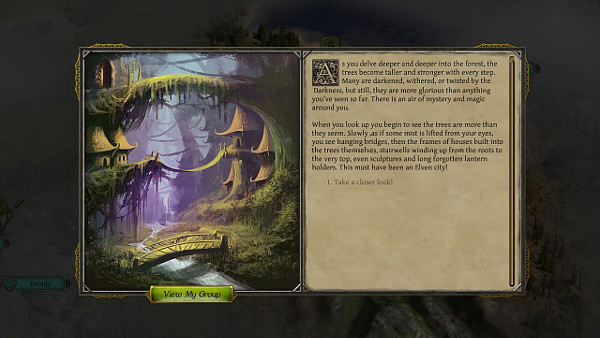
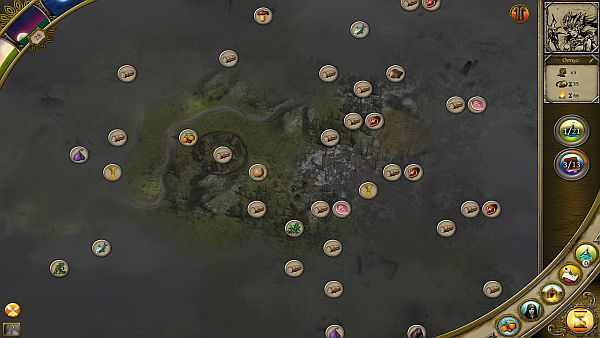
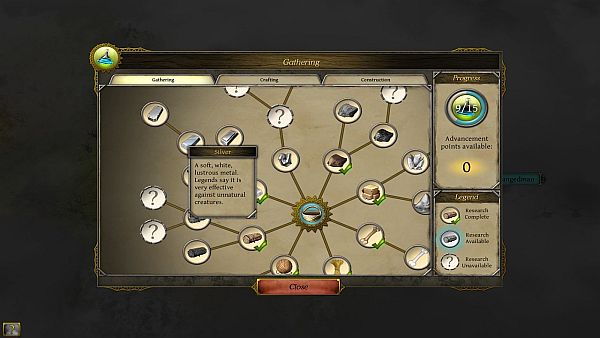
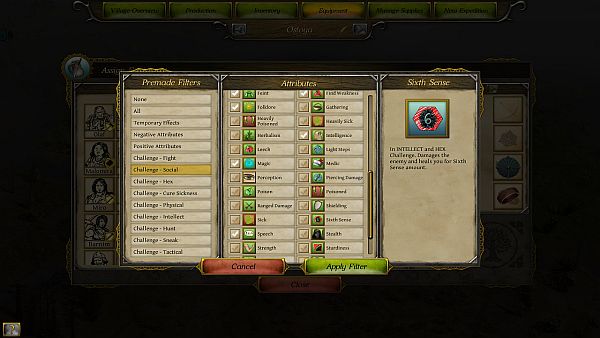
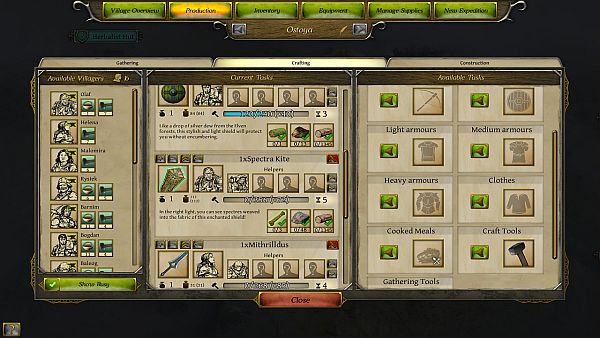
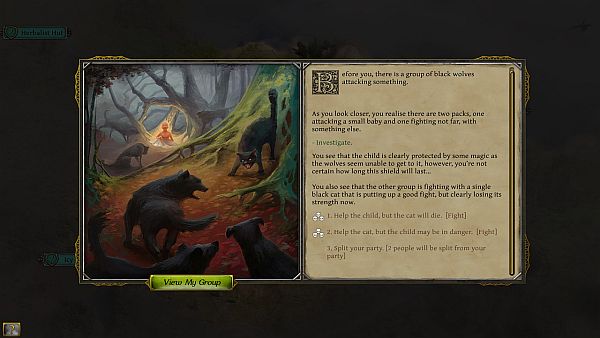
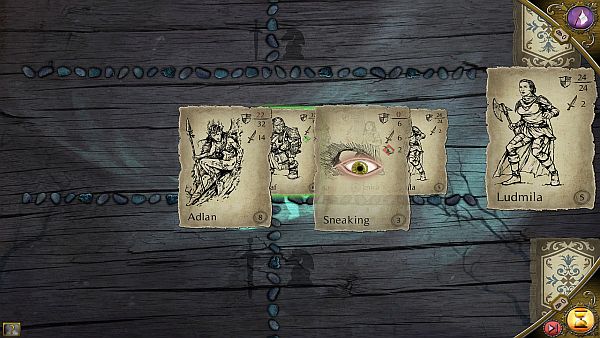
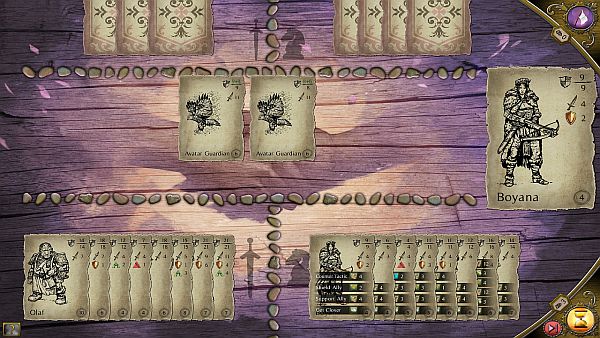
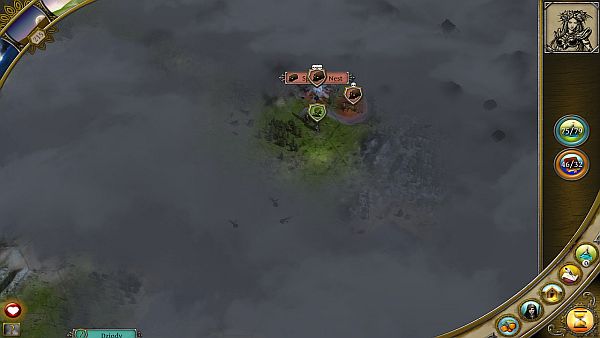
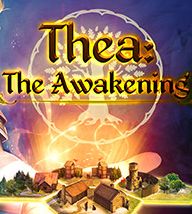

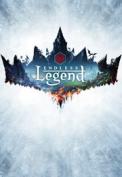




Thanks for the review :)
You’re very welcome, Gary. Thanks for the comment!
Quick update for those who may prefer to get their games on GOG. They’ve just released the news the game has now been accepted by GOG and will be appearing on there in the near future.
A fair review, although you seem to enjoy it more than I do. :) I do find many aspects of Thea to be fun and engaging, mostly in the game’s overall presentation. It’s does come across like reading a RPG novel but inserting your own decisions within each chapter.
It’s not a really a 4x type of game, so any comparisons to those type of gaming would not seem appropriate. It does have it’s own personality.
Hopefully, the developers will get some rewards for their effort, as I do hope to see more from them in the near future.
Hi Keith,
I was watch a few let’s plays on youtube and while the initial few hours looked fun and balancing exploring parties and village needs seemed challenging, later on, the world and monster/quest just seemed bland as you continue to level up and tech improves.
Did you get that impression once the initial learning curve flattens out? I mean, the variety, as in how you can interact with the world, doesn’t change much between the 1st hour to the 10th.
Once you understand the core mechanisms of the game, it does become mostly about how you want to approach them. The game has a very sandbox feel in that way. While you will be influenced by the resources and threats nearby, as well as whatever events pop up to help drive the narrative, you are still free to experiment. I suspect at higher difficulty that the far more aggressive world will drive you towards more specific actions in order to survive. They just added an even higher difficulty level called realism in fact.
Even on normal difficulty, I didn’t find that the toned down threats diminished my experience. There is actually still a lot I’d like to try out in the game. I guess it depends on whether or not discovering new events and handling old ones in a different way if they should come up again would be entertaining for you.
Great review, Keith, thank you!
Indeed the game is very fun and different. Took me some time to grasp it all, but once I got it, it was great! Very unforgiving game though.
Great comprehensive review but it really doesn’t seem like my kind of game. The card-based combat just sounds enormously dull and the emphasis on crafting and resource gathering would probably send me straight to sleep.
Thanks Mark. I know you weren’t expecting to like the card combat, but you still gave the review a look just to be sure and I really appreciate that. Thanks for the comment!
Yes I was still on the fence about it after the preview, but your review contained more than enough detail for me to make an informed decision.
Thanks for taking the time and effort to do such a comprehensive job of your reviews. Your hard work is much appreciated.
Okay, Im going to buy it. You convinced me.
yours
SamDog